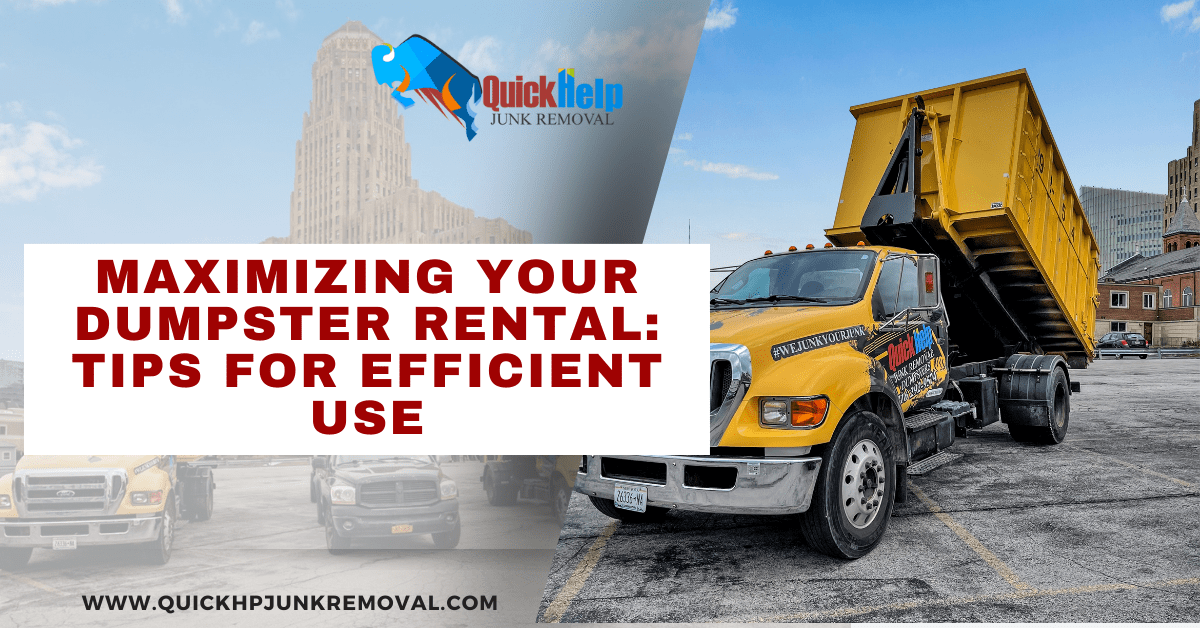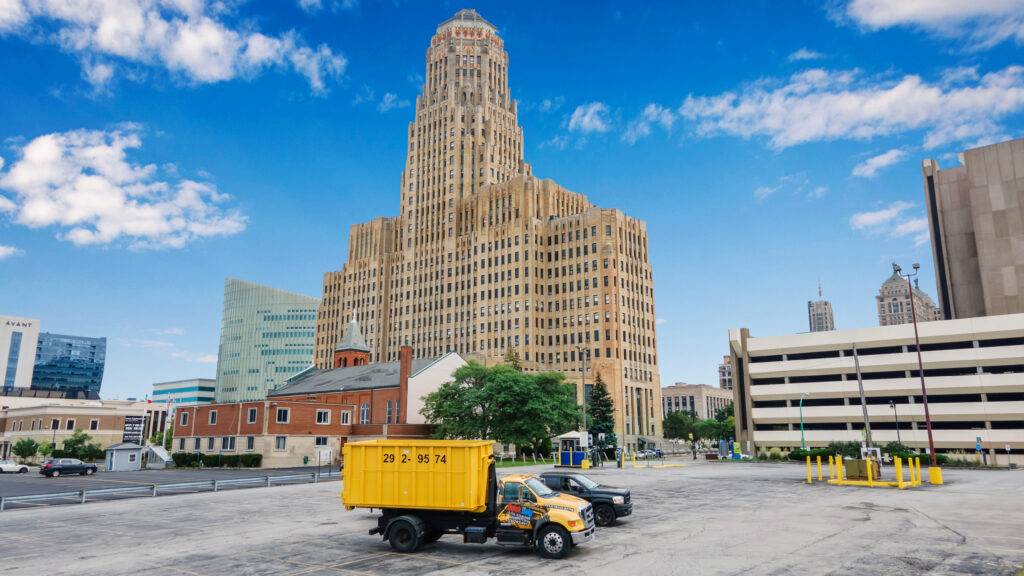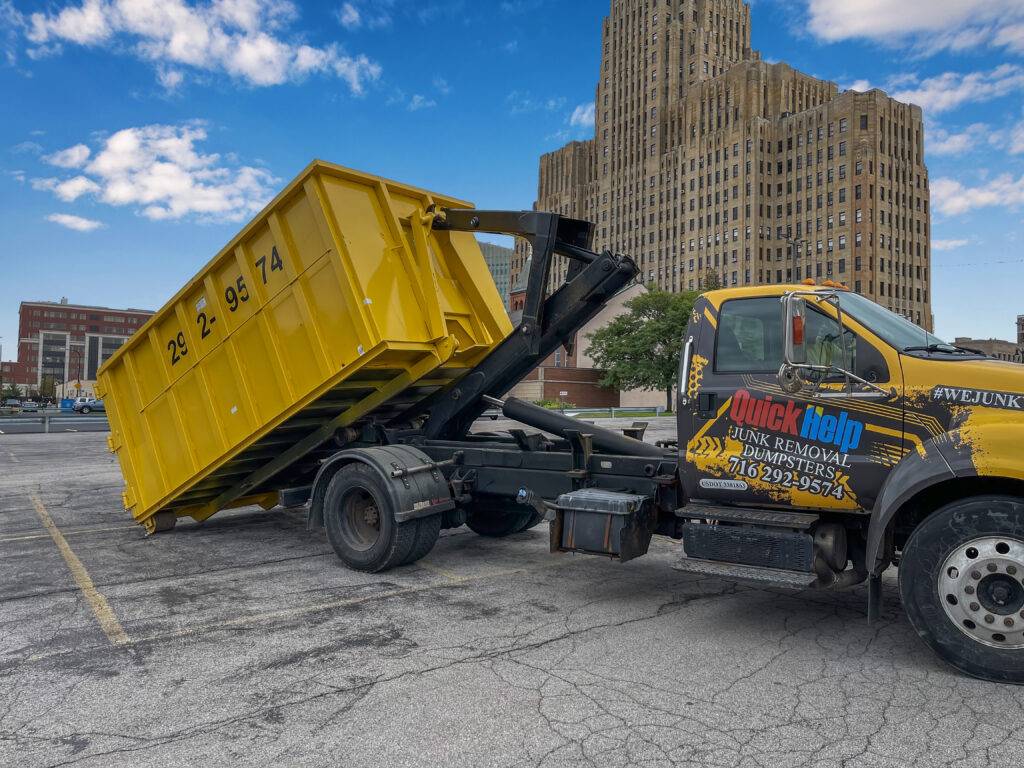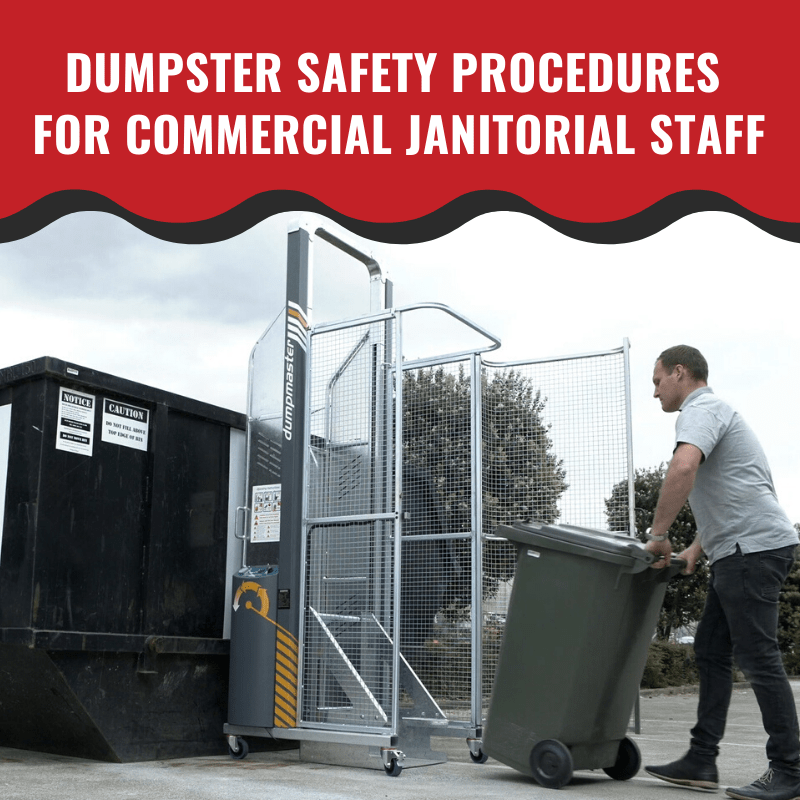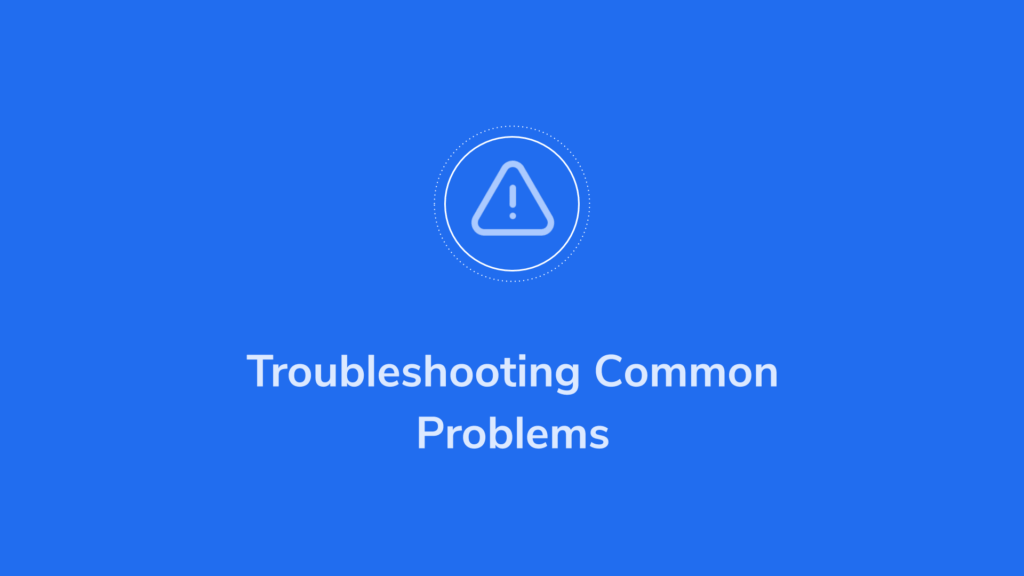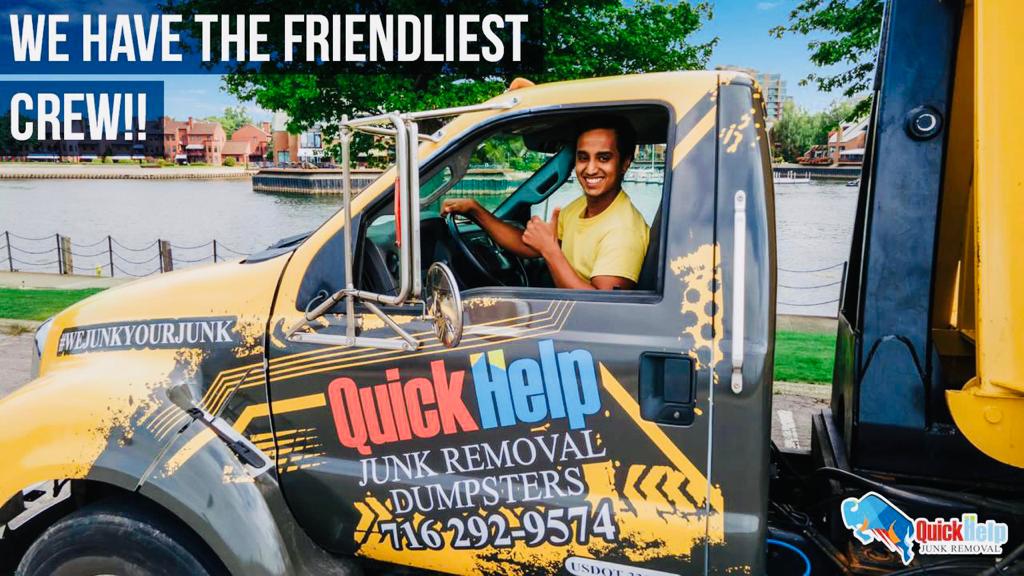Maximizing Your Dumpster Rental? If you’re planning a big cleanout, home renovation, or construction project, renting a dumpster can be a game-changer. But to get the most bang for your buck, it’s essential to use your dumpster efficiently. As a professional in the junk removal industry, I’m here to share some tips and tricks to help you maximize your dumpster rental. Let’s get started!
Understanding Your Dumpster Rental
Types of Dumpsters
First things first, it’s important to understand the different types of dumpsters available. This will help you choose the one that best suits your needs.
Residential Dumpsters: Perfect for small home projects like garage cleanouts or minor renovations. These dumpsters fit comfortably in most driveways.
Commercial Dumpsters: Designed for larger projects, these dumpsters are ideal for businesses and construction sites.
Roll-off Dumpsters: The most versatile option, roll-off dumpsters can handle a variety of projects. They come in different sizes and can be rolled off the truck directly onto your property.
Choosing the Right Size
Selecting the right dumpster size is crucial to avoid extra costs and ensure all your waste fits.
Factors to Consider:
- Type of Project: A small home cleanout will need a smaller dumpster compared to a full-scale construction project.
- Amount of Waste: Estimate the volume of waste you’ll generate. Our team at Buffalo Junk Removal Experts can help with this.
- Space Available: Make sure you have enough space on your property to accommodate the dumpster.
Common Sizes and Uses:
- 10-Yard Dumpster: Ideal for small cleanouts and minor renovations.
- 20-Yard Dumpster: Great for larger cleanouts and medium-sized renovation projects.
- 30-Yard Dumpster: Perfect for major renovations or large-scale cleanouts.
- 40-Yard Dumpster: Best for commercial projects and large construction sites.
Planning Before Your Dumpster Arrives
Assessing Your Waste
Before your dumpster arrives, take some time to assess the type and volume of waste you’ll be disposing of. This will help you organize your waste and make the most of your dumpster space.
Estimate the Volume: Walk through your project area and make a rough estimate of how much waste you have. This will help you avoid overfilling your dumpster.
Separate Recyclables and Hazardous Materials: Not all waste can go into a dumpster. Separate out recyclables and any hazardous materials like paint, chemicals, or electronics. Our team can guide you on proper disposal methods for these items.
Selecting the Ideal Location
Choosing the right spot for your dumpster is key to efficient use.
Accessibility for the Rental Company: Make sure the location is easily accessible for the delivery and pickup trucks.
Safe and Convenient Placement: Ensure the spot is convenient for you to access but doesn’t block driveways or walkways. Placing it on a hard surface like concrete or asphalt is ideal to avoid damage to your property.
Efficient Loading Techniques
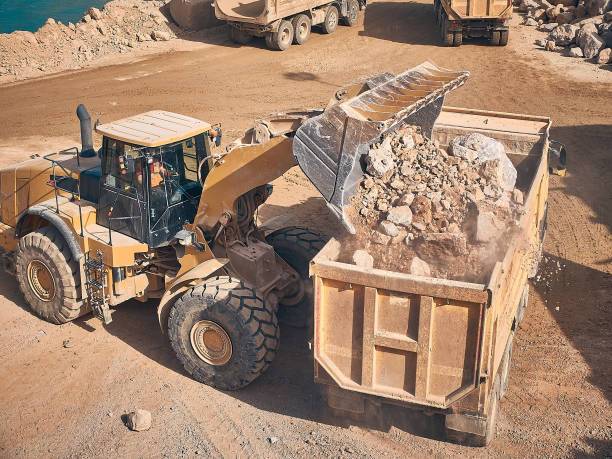
Breaking Down Large Items
To maximize space in your dumpster, break down large items whenever possible.
Furniture: Disassemble items like couches, tables, and chairs to fit more efficiently.
Construction Debris: Cut down large pieces of wood, drywall, or other materials.
Distributing Weight Evenly
Avoid overloading one side of the dumpster, as this can cause tipping and additional fees.
Even Weight Distribution: Spread heavy items evenly throughout the dumpster to maintain balance.
Layering Waste
Strategically place items to utilize all available space.
Bottom Layer: Start with flat, heavy items like broken furniture pieces or old appliances.
Middle Layer: Add bulkier, lighter items like bags of clothes or boxes.
Top Layer: Finish with smaller, loose items to fill in any gaps.
Safety Tips for Dumpster Use
Personal Protective Equipment (PPE)
Safety first! Always wear appropriate PPE when loading your dumpster.
Gloves: Protect your hands from sharp objects and debris.
Masks: Wear a mask if you’re dealing with dust or mold.
Protective Clothing: Long sleeves and pants can help prevent scratches and scrapes.
Safe Lifting Techniques
Lifting heavy items improperly can cause serious injuries.
Lift with Your Legs: Bend at your knees, not your waist, and use your leg muscles to lift.
Ask for Help: Don’t try to lift extremely heavy items by yourself. Get help to avoid injuries.
Avoiding Overloading
Understanding weight limits is crucial to avoid extra fees and ensure safe disposal.
Know Your Limit: Check the weight limit of your dumpster and try to stay within it.
Spread the Load: Evenly distribute heavy items to avoid overloading one side.
Environmental Considerations
Recycling and Reusing
Being environmentally conscious can also help you save space in your dumpster.
Separate Recyclables: Set aside items like paper, cardboard, plastics, and metals for recycling.
Reuse When Possible: Items in good condition can be donated or repurposed instead of thrown away.
Proper Disposal of Hazardous Materials
Some items can’t go into a regular dumpster due to safety and environmental regulations.
Identifying Hazardous Waste: Know what qualifies as hazardous (e.g., batteries, paint, chemicals).
Safe Disposal Methods: Contact our team for guidance on how to dispose of these materials safely.
Communication with Your Rental Company
Scheduling Pickup and Extensions
Timely communication with your rental company ensures smooth operation.
Schedule Pickup in Advance: Let us know when you’re nearing the end of your rental period so we can arrange pickup.
Requesting Extensions: If you need more time, contact us to extend your rental period.
Understanding Rental Terms and Conditions
Knowing the terms of your rental agreement can prevent misunderstandings and additional charges.
Read the Fine Print: Familiarize yourself with the terms and conditions of your rental.
Clarify Doubts: If you have any questions, don’t hesitate to ask our team.
Troubleshooting Common Issues
Dealing with Overfilled Dumpsters
An overfilled dumpster can cause problems during pickup and result in extra fees.
Avoid Overfilling: Follow the guidelines and don’t exceed the fill line.
Solutions for Overfilled Dumpsters: If you do overfill, contact us to discuss your options.
Managing Heavy or Bulky Items
Handling particularly heavy or bulky items can be challenging.
Safe Disposal Tips: Break down large items and distribute weight evenly.
Contact Us for Help: If you’re unsure how to handle certain items, give us a call for advice.
By following these tips, you can maximize the efficiency of your dumpster rental, saving you time and money. Whether you’re tackling a home renovation, a major cleanout, or a construction project, efficient dumpster use is key to a smooth operation.


